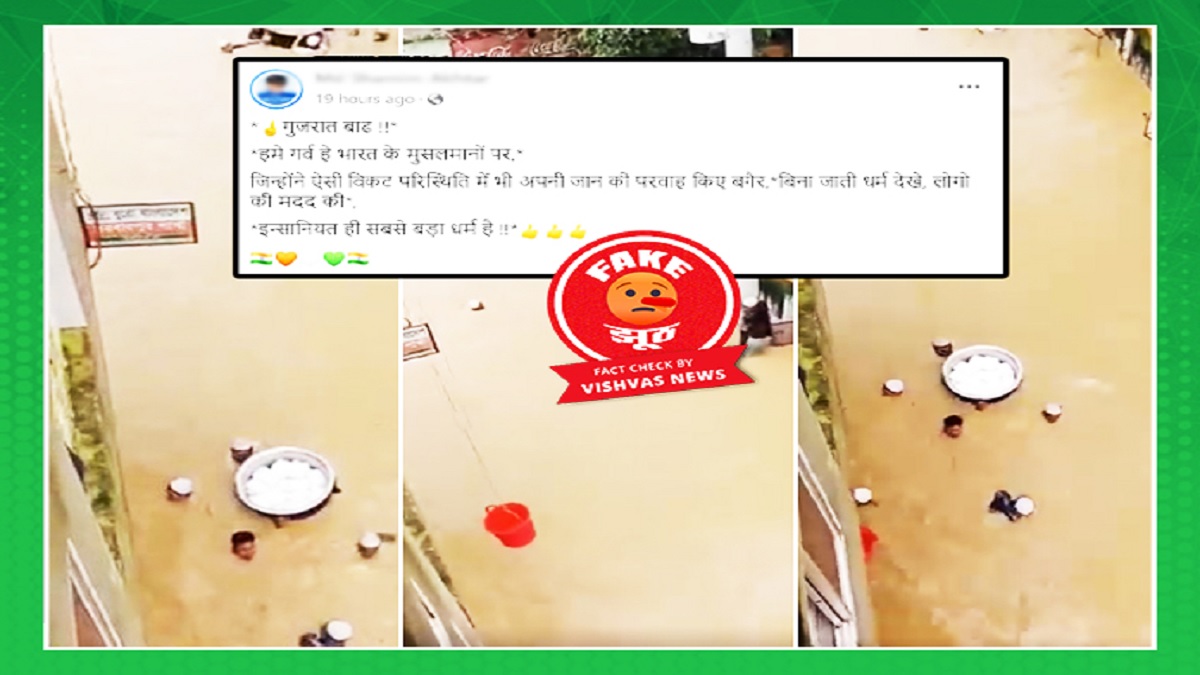The recent heavy rains and flooding in Gujarat have sparked widespread concern and a wave of social media activity, including the sharing of videos purporting to show rescue efforts in the state. One such video, showcasing students aiding flood victims, went viral, falsely claiming to depict the situation in Gujarat. However, a thorough fact-check investigation has revealed that the video originates not from India, but from Bangladesh.
Tracing the Video’s Origins:
A meticulous Google reverse image search, using keyframes from the video, led us to a Facebook account belonging to MH Fahad Mondol, a Bangladeshi user. This account, where the video was uploaded on August 25, 2024, contained a caption in Bengali language identifying the location as Bangladesh and crediting the heroic rescue efforts to madrasa students.
Verifying the Location:
Further investigation revealed that the video indeed depicted a flooding event in Bangladesh, likely related to the severe monsoon rains that had impacted the region. Numerous media reports and social media posts from Bangladeshi sources confirmed the occurrence of widespread floods in the country during the relevant period.
The Power of Disinformation:
The viral spread of this misattributed video underscores the rapid dissemination of false information on social media platforms. During crisis situations, people are more likely to believe content that resonates with their emotions and anxieties. This makes it crucial to verify the authenticity of information before sharing it, especially when it pertains to humanitarian disasters.
Fact-Checking in a Digital Age:
The proliferation of misleading and fabricated content requires proactive efforts to combat misinformation. Fact-checking platforms like Vishvas News play a vital role in promoting media literacy and fostering trust in the information we consume. By verifying the origin and content of shared information, they contribute to informed decision-making and responsible engagement online.
Beyond the Video:
While the video itself is demonstrably false, its underlying message remains poignant: the compassion and selflessness displayed by individuals amidst disasters. Regardless of its origin, the act of helping those in need transcends geographical boundaries, underscoring the shared humanity we all possess.
The Importance of Critical Thinking:
In an era of information overload, critical thinking skills are more important than ever. It is essential to adopt a questioning mindset and evaluate content for potential biases, inaccuracies, or hidden agendas. By utilizing available fact-checking resources and employing our critical thinking skills, we can navigate the digital landscape with more discernment.
Engaging with Information:
Engaging with information responsibly involves going beyond just sharing or consuming it. Taking the time to verify the information’s source and validity ensures we contribute to the spread of truth, rather than perpetuating misinformation.
Takeaways:
- Social media, while a powerful tool for connection and communication, can be a breeding ground for misinformation.
- During times of crisis, misinformation spreads rapidly, fueling panic and distrust.
- Fact-checking platforms and resources are crucial tools for promoting media literacy and combating misinformation.
- Critical thinking skills are vital for navigating the digital world responsibly and discerning truth from fabrication.
- The act of helping others during times of hardship is a powerful reminder of our shared humanity, regardless of the source of information.




